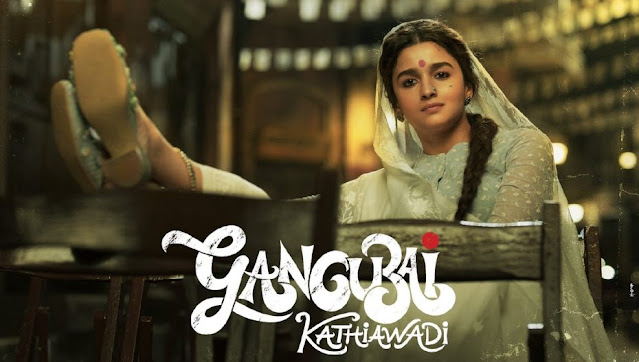
Early in Sanjay Leela Bhansali's Saawariya, Gulab (Rani Mukerji) tells her friend Raj (Ranbir Kapoor) that the childhood of the sex workers of Khwaabon Ka Sheher was spent in waiting—either waiting for their mothers to come back or waiting for a magical pari. But no one came to help them and they kept crying. Moments later, Raj consoles the abused sex workers of the dreamland that a pari will come to rescue them. Ek din aasmaan se pari aayegi. In his latest film Gangubai Kathiawadi, Sanjay Leela Bhansali brings to life that pari who comes to better the lives of the sex workers of Kamathipura. The film narrates the story of the eponymous Gangubai, the madame of a brothel in Kamathipura, played by Alia Bhatt. Its screenplay has been adapted from the chapter The Matriarch of Kamathipura from the book Mafia Queens of Mumbai written by S. Hussain Zaidi and Jane Borges.
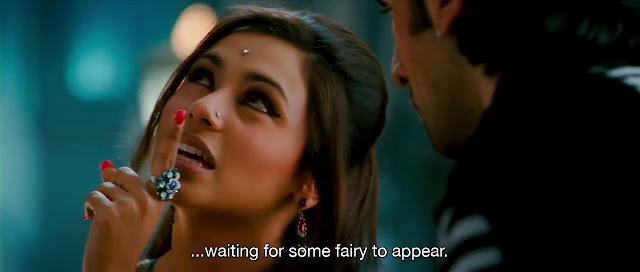
Sanjay Leela Bhansali has sympathized with the sex worker character throughout his oeuvre. In Devdas, the bazaaru aurat Chandramukhi (Madhuri Dixit) dances with the thakurain Paro (Aishwarya Rai). The two women dance together not in private but in front of society. They are well aware of what they are doing and know that they are disrupting societal norms. Even if the heavens strike, they do not care because they want to dance for the man they love. Lag jaane do najariya, gir jaane do bijuriya. Chandramukhi also berates Kaali Babu (Milind Gunaji) that if she lives in a badnaam mohalla, then it is thakur men like him who visit the mohalla and help to keep it running. The children born there have the same blood in them as the thakurs.
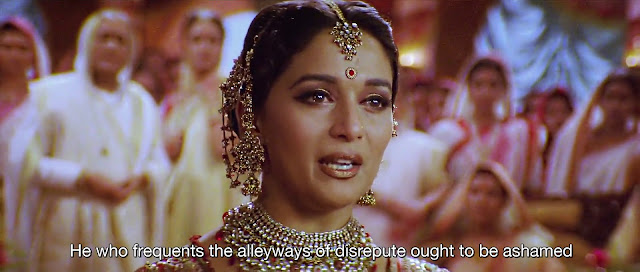
In Saawariya, Gulab is disparagingly referred to as a dhandewali by the landlady Lillian (Zohra Sehgal). Gulab replies to her that Lillian is a dhandewali, too. Lillian had a guesthouse, which she started to rent out to people. Gulab did not have anything besides her body. Thus, she made it into a guesthouse. Customers come and sleep in both. Therefore, Lillian is not much different from Gulab as both are businesswomen.

In Gangubai Kathiawadi, Gangubai makes the same larger points as Chandramukhi and Gulab in her climactic speech at Azad Maidan. Different people have varied businesses. A qualified person sells his intelligence. Likewise, sex workers sell their own bodies. So, why the discrimination against them. Men from respected neighborhoods come to them, but it is the women's neighborhood that is called infamous. Hamara hi mohalla badnaam kyun. Gangu goes a step further and adds a moral responsibility to the sex workers. Women like her keep men's violent urges in check, thereby helping maintain peace in society. Therefore, she is proud of the work she does.

Gangubai Kathiawadi begins with a young girl being forcefully indoctrinated into sex work. She is tortured, but she refuses to give in. Then, Gangubai is called to convince her because uski gaali me bhi pyaar hai. She then narrates her journey from being Ganga to becoming Gangu. She was tortured in the same way by Sheela Maasi (Seema Pahwa) when a lover betrayed her and instead sold her to the brothel. She learned the hard way but eventually gave in to the madame's orders. Gangu befriends other women in the brothel and ekes out a living. At one stage, she remarks to her friend Kamli (Indira Kumari) that one day she will become the owner of the brothel, foreshadowing her life ahead. "Tu dekhna, Kamli, agle paanch saal me na, yeh pura kotha khareed lungi." Like the way in Hum Dil De Chuke Sanam, when Sameer (Salman Khan) falls in the water on his arrival at the household, Kamna Bui (Rekha Rao) says, "Jaate hue sabko rula ke jaayega yeh pardesi." Like the way in Bajirao Mastani, Bhanu (Snehlata Vasaikar) curses Kashibai (Priyanka Chopra) that one day she will pine for her husband, "Ek din tum bhi apne pati ke liye tadpogi."
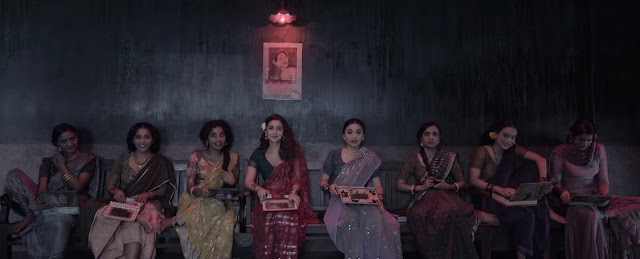
A client assaults and wounds Gangu. The scars on her stomach mean an attack on her livelihood. She goes to meet the local don Rahim Lala (Ajay Devgn). "Dhanda aap ka bhi dharam, aur hamara bhi," she tells him. If someone disrespects the religion, then the traitors are punished by God, he tells her. It is precisely the reason that she came to him. For her, he is the God who will dispense justice. At a later stage, she again calls him God and bows down in front of him. Through the blessings of God, Gangu was able to exert power over Sheela Maasi and eventually became the madame. Her wish came true. "Tu dekhna, Kamli, agle paanch saal me na, yeh pura kotha khareed lungi."
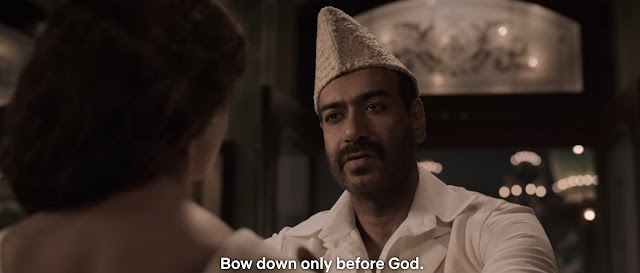

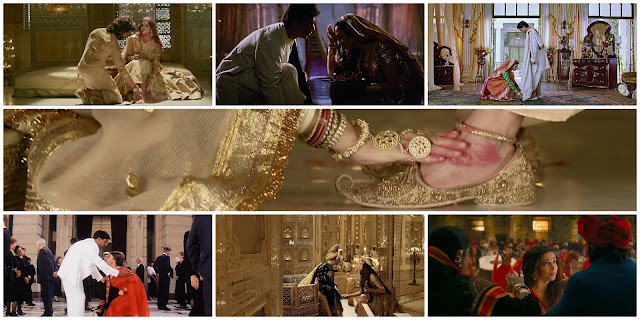
Touching the feet.
Once Gangu takes charge of the brothel, she takes care of the girls and becomes a gharwali. The girls give her a white saree so she would look like a politician. But then, Gangu decides to dress only in white. White also becomes the palette of the film in all the crucial scenes. The Azad Maidan tent is all white. The Prime Minister's office is all white. The final procession is all white. In Raj Kapoor's Sangam, Radha (Vyjyanthimala) was also dressed in white throughout the film. Towards the end, her friend Gopal (Rajendra Kumar) tells her suspicious husband Sundar (Raj Kapoor) that the day Radha wed him and entered his house, she was as pure as the river Ganga. The white color represented Radha's purity and her pavitrata.
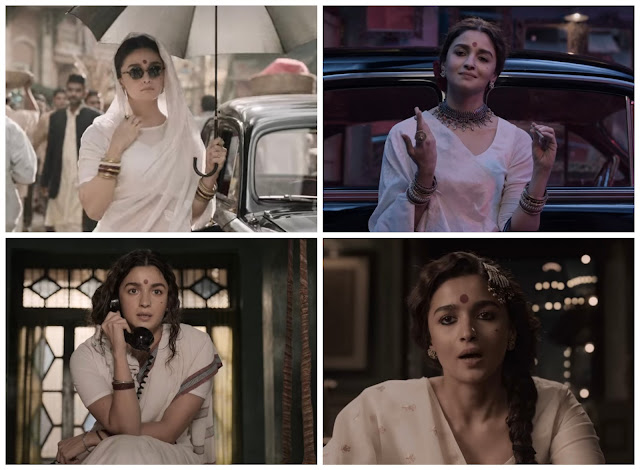
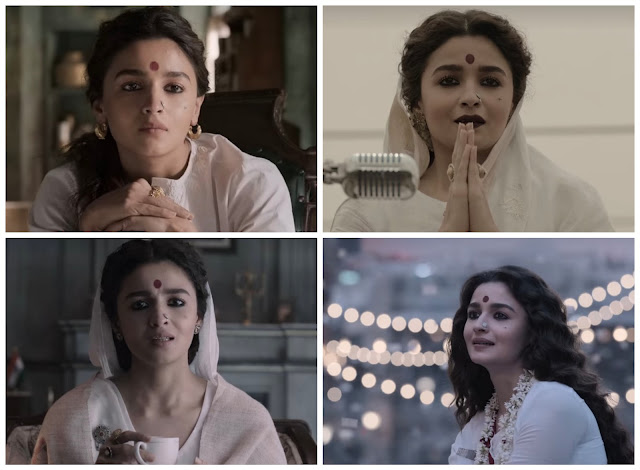
Gangubai in White


Radha in White
White is also the beginning of Gangubai's love story with the local tailor Afshan (Shantanu Maheshwari), who offers to sew a blouse for her. In their first meeting, they both are dressed in white and talk about white. In a beautiful dialogue, Gangu tells him about the different types of white. He tells her to choose the white of the swan. Hans-vala safed. Their love story starts to blossom in Jab Saiyaan. Like Juliet, Gangu stands on the balcony communicating with her Romeo, Afshan, who stands below. Through silent gestures, they play a game of hearts while playing a game of cards. Like the way, Dev (Shah Rukh Khan) and Paro played a game of cards in Bairi Piya in Devdas. Afshan loses the game and his heart to Gangu. He comes to her room, and she offers him a red sherbet. She turns away the picture of Dev Anand and watches him drink. She goes on a ride with him in a carriage. The colors are again memorable. The carriage is black. He is in black. She is in white and black, as if they both are merging together. She puts her head on his lap, looking for some comfort.
 Afshan comes to deliver the blouse. He watches her perform her ablutions. Like the way, Kashibai watched Bajirao (Ranveer Singh) performing his ablutions in Bajirao Mastani. Gangu takes a bath, but Afshan is the one who gets wet. They declare their love and hug each other. At that precise moment, the temple bells start ringing. Like the way, the temple bells started ringing when Ram (Ranveer Singh) and Leela (Deepika Padukone) consummate their marriage during Ang Laga De in Goliyon Ki Raasleela Ram-Leela.
Afshan comes to deliver the blouse. He watches her perform her ablutions. Like the way, Kashibai watched Bajirao (Ranveer Singh) performing his ablutions in Bajirao Mastani. Gangu takes a bath, but Afshan is the one who gets wet. They declare their love and hug each other. At that precise moment, the temple bells start ringing. Like the way, the temple bells started ringing when Ram (Ranveer Singh) and Leela (Deepika Padukone) consummate their marriage during Ang Laga De in Goliyon Ki Raasleela Ram-Leela.

Playing Cards


Gangubai Kathiawadi and Bajirao Mastani

Gangubai Kathiawadi and Goliyon Ki Raasleela Ram-Leela
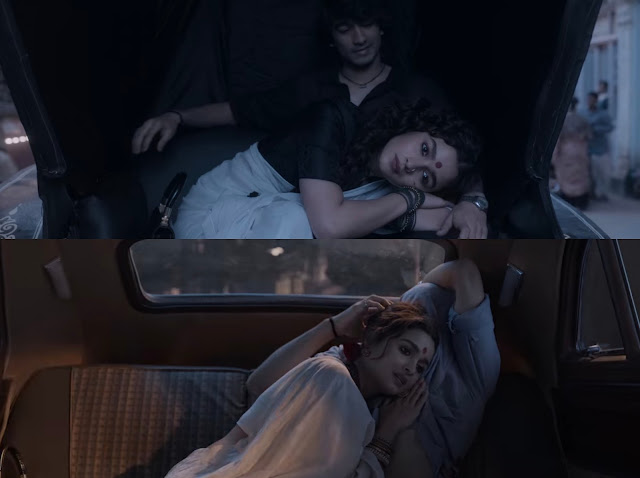

Flashbacks

Qawaali
Her political fight begins. Gangu defeats her bête noire Razia Bai (Vijay Raaz) in the local elections. She assembles all women, gives a speech about dignity, and talks about guroor, Bhansali's favorite word. "Arey jab shakti, sampatti, sadbhuddhi, teenon hi auratein hain, toh in mardon ko kiss baat ka guroor." Like the way, Ram says in Goliyon Ki Raasleela Ram-Leela, "Guroor me doobe samundar ko bhi kahan pata tha ki woh ek din banjar rann ban jayega." Like the way, Kashibai says in Bajirao Mastani, "Par aapne to hum se humara guroor hi cheen liya." Gangubai tells all women to never be afraid of anyone and live with dignity. Like the way, Padmavati (Deepika Padukone) gathers all women in Padmaavat and asks them to live and die with pride.
Gangubai Kathiawadi and Padmaavat
Gangubai fights her next battle to save her brothel from being shut down. A journalist Faizi (Jim Sarbh), who also falls in love with her, helps her with publicity. She gives a roaring speech at Azad Maidan talking about the rights of sex workers. She gets to meet Jawahar Lal Nehru, the country's first prime minister, asking for his assurance on the same. She tried to deliver on her promises and left behind a long-lasting legacy.

In Devdas, the golden walls of Chandramukhi's kotha represented her heart of gold. In Gangubai Kathiawadi, Gangubai has a tooth of gold representing her inner heart. Her brothel is not as flashy as Chandramukhi's but combines realistic and fantastical elements. The brothel is designed like a cage. Un qaid pinjaron me bhi khul ke saans lena sikhaya. There are paintings by Raja Ravi Verma, and photographs of film actors lining its walls. There are paintings of Goddesses. When Gangubai rescues the girl from Rashmi Bai (Chhaya Kadam), she suddenly turns around, and a picture of the Goddess can be seen in the background, as if Gangu is a Goddess, too. Like the way, Kashibai is shown in Bajirao Mastani. The neighborhood of Kamathipura is designed as a secular one that does not discriminate against anyone. Gangubai waters the tulsi plant. Her neighbor is a Muslim. The hospital has photographs of Parsi God Zarathustra. Chinese doctors are living there as well. There is a celebration of Navratri and Eid. In her meeting with Nehru, Gangu invokes that she is Havva ki beti, Yashoda ki humjins, Radha ki beti, Paigambhar ki ummat, Julekha ki beti.


Goddesses
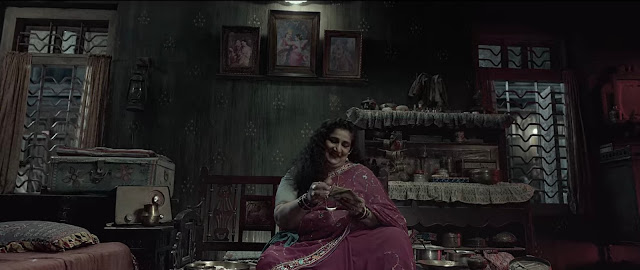
Paintings

Nargis Dutt

Zarathustra
There is also a cultural theme lining the film. It opens with Begum Akhtar's Yeh Na Thi Hamari Qismat. Gangu reads Ghalib's poem Hazaaron Khwahishen Aisi. She recites Sahir's Jinhe Naaz Hai Hind Pe in front of Nehru. References to cinema from that time can be seen throughout as well. There are posters of Mughal-E-Azam and Chaudhvin Ka Chand in Kamathipura. There is a poster of Baiju Bawra, which Bhansali is also planning to make next. Dev Anand plays a special role of his own in the film. When Ganga meets Sheela Maasi for the first time, she talks about changing her taqdeer. The song that plays in the background when she says it also talks about taqdeer—Aa Teri Tasveer Bana Loon, Main Apni Taqdeer Bana Loon from Naadan. When Sheela Maasi is about to die, she befittingly sings Begum Akhtar's Ulti Ho Gayi Sab Tadbiren, symbolizing the change in her destiny. The whole dialogue-baazi of the film is a throwback to the masala genre of the 1970s. Gangu gets an opening like a masala hero, with her first shot being her payal-laden feet while holding a Rani Chaap liquor bottle in her hands. The fight with Razia Bai also involves films and intervals. Gangubai shows a film by Dev Anand (most likely Nirala) to the audience on the streets. Like the way, Mughal-E-Azam played in Saawariya. Gangubai wanted to become a film star, but she became a cinema herself.

Mughal-E-Azam and Chaudhvin Ka Chand

Baiju Bawra

Gangubai Kathiawadi and Saawariya
Many scenes stand out in the film, aided by Sudeep Chaterjee's beautiful cinematography. Early on, one of the girls in the brothel asks Gangu to write a letter to her father. She agrees to help her write it. Taking turns, all the other girls add a few words of their own to the letter. This is the perfect example of shared sisterhood. Another beautiful scene is when there is no electricity; all the sex workers come out holding candles, lighting-up Kamathipura. It is stunning. Another one is when Kamli dies; the women dress her up while she is lying dead. On the other side sits Gangu holding Kamli's child in her hands. The scene is set up wonderfully, showing different contrasts. There is red and white. There is mother and child. There is life and death. There is the end of life and the beginning of life.

There are other tropes from the Sanjay Leela Bhansali film universe that can be seen in Gangubai Kathiawadi. There is the weaving motif where Gangu and her girls are weaving a garland. There is the Garba dance song Dholida during Navratri. Gangubai enters a trance state in the final moments as if a Goddess had entered her. Like the way, Dhankor Ba (Supriya Pathak) danced during Nagada Sang Dhol Baaje in Goliyon Ki Raasleela Ram-Leela. There is the Eid celebration which is reminiscent of the Eid from Saawariya. There is a song about the moon. The is the motif of wearing roses on the head. There is the motif of the mirror shots.

Garba dance in Gangubai Kathiawadi and Goliyon Ki Raasleela Ram-Leela
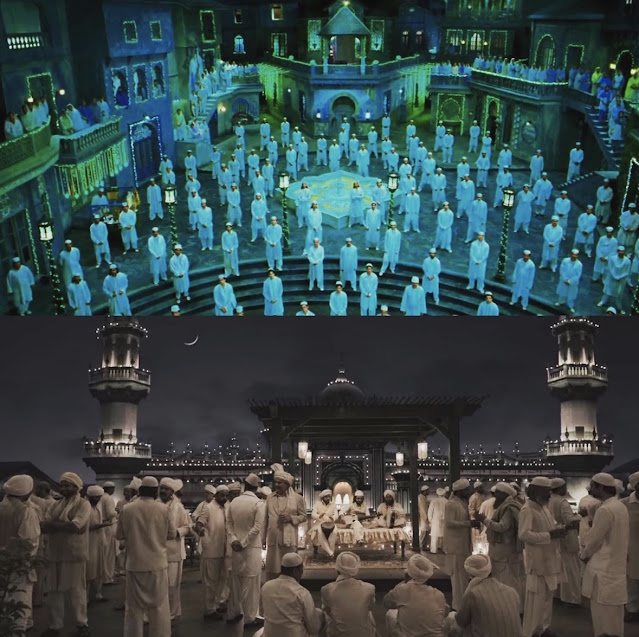
Eid in Gangubai Kathiawadi and Saawariya
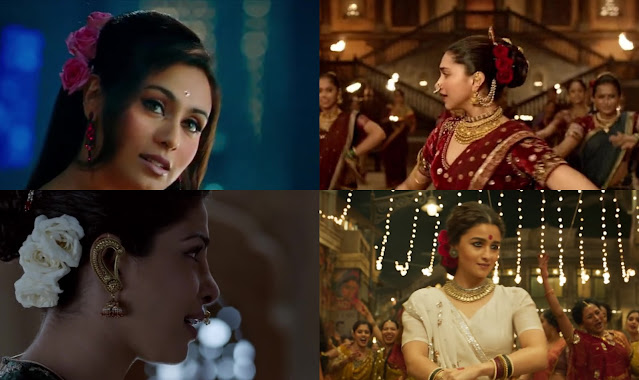
Women with Roses

Gangubai Kathiawadi and Guzaarish
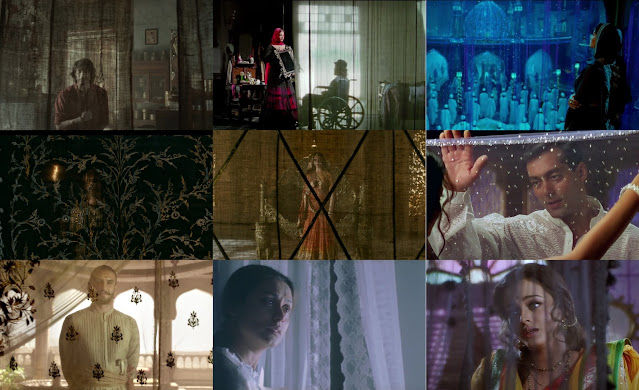
Curtains

Mirrors


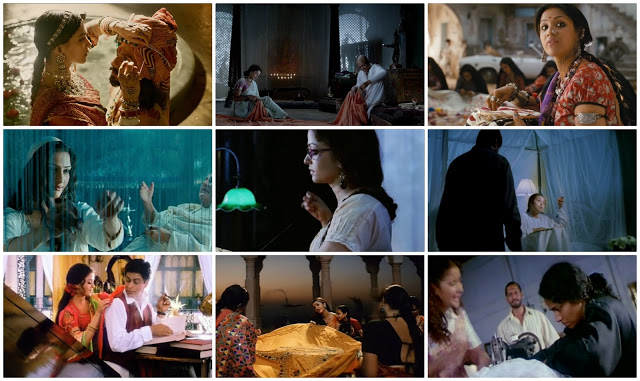
Weaving
Gangubai Kathiawadi is a different Bhansali film. Alia Bhatt is present in almost every single frame of the film. She is excellent in most of the scenes. But I did see her struggle in some scenes that required some gravitas. For instance, the one where she is drunk and shoos away Razia Bai's people. Or the one she screams at the telephone operator to give a few more seconds. However, Gangubai Kathiawadi made me think about the importance of the physicality of an actor for a particular role. An actor's persona and physicality add to the performance. It is what I felt was missing here, even if her performance was excellent. Recently, there was also Hitesh Bhatia's Sharmaji Namkeen, where the lead actor was performed by two actors—Rishi Kapoor and Paresh Rawal. Both were fine performances, but somehow, Rishi Kapoor went more with the character. Perhaps, because his persona went more with an aging middle-class man.

The other issue was the screenplay which seemed very chapter-driven. The cold war between Gangubai and Sheela Maasi was far more interesting than between the former and Razia Bai. The film lost a bit of its momentum after her election victory, and there was nothing much happening. Even the Azad Maidan speech did not add a lot to the film. In places, Gangubai Kathiawadi reminded me of the masala bits of Goliyon Ki Raasleela Ram-Leela, which is not my favorite Bhansali film. I prefer the larger-than-life Bhansali. And, I wished the palette of Gangubai Kathiawadi was a little different. The film was trying to be more realistic, but I wish there were some more colors to the palette. Nevertheless, the little Bhansali bits and details, and some beautiful scenes accentuated the film.
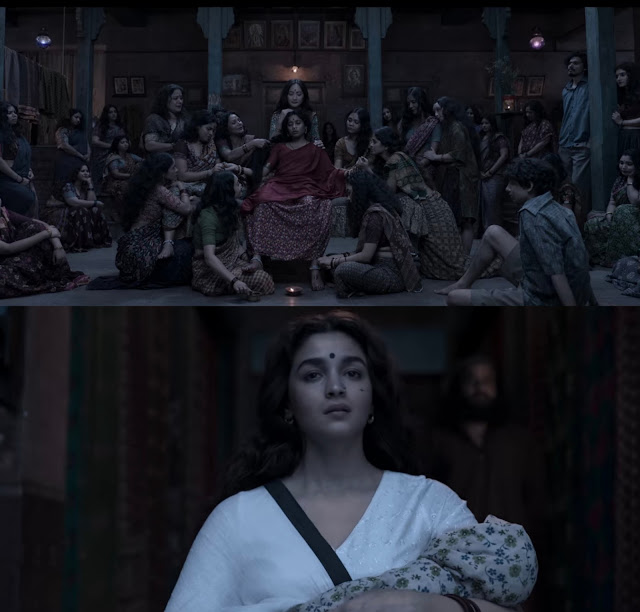
Life and Death
After her election victory, Gangu tells the women that a flower's work is to spread fragrance all over. Likewise, she spread the fragrance all over. She was no saint, but she tried her might to fight for the rights of the sex workers. And the streets of Kamathipura were indebted to her and were forever colored in Gangu-vala safed.
Other Reading:
1. On Devdas—Link2. On Black—Link
3. On Bajirao Mastani—Link
4. On Goliyon Ki Raasleela Ram-Leela—Link
7. On Sangam—Link
Dialogue of the Day:
"Arey jab shakti, sampatti, sadbhuddhi, teenon hi auratein hain, toh in mardon ko kiss baat ka guroor."—Gangu, Gangubai Kathiawadi

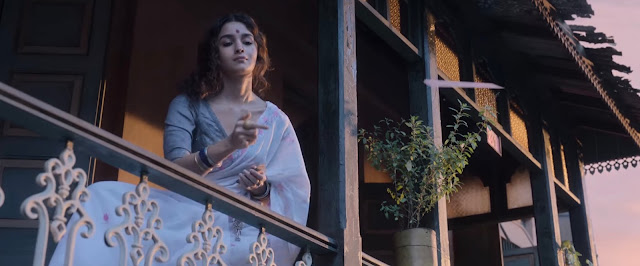


This film was not in my wishlist to watch. But on saturday got to know about your blog on this movie. Finished the movie in 3-4 parts yesterday, just to read your blog. Just loved your narratives and discription on small small parts of the movie.
ReplyDeleteGood work buddy, keep it up....
Thanks so much, Manish. :)
ReplyDeleteI think I really should have read this immediately after watching the film. Better late than never. I am truly blown. This is so great!
ReplyDeleteIt was such a lovely reading.
ReplyDeleteWow i accept the idea of phisicality,but through acting an actor could cross that line, awesome example is Raj Kumar Rao,and i may attract controversy but i guess sharukh also has that capabilities see swades,raees and chak de India far from lover boy,and i was apprehensive about Raj regarding whether he will able to match the chocolate image like kartik has,which helps him alot inspite of poor mimicry of Akshay,whom he called acting,but then I saw hit(remake) and just realised just like trap,and omer he ll be able to transform for bhulbulya as well.. thankfully he dint as the movie had poor script
ReplyDelete